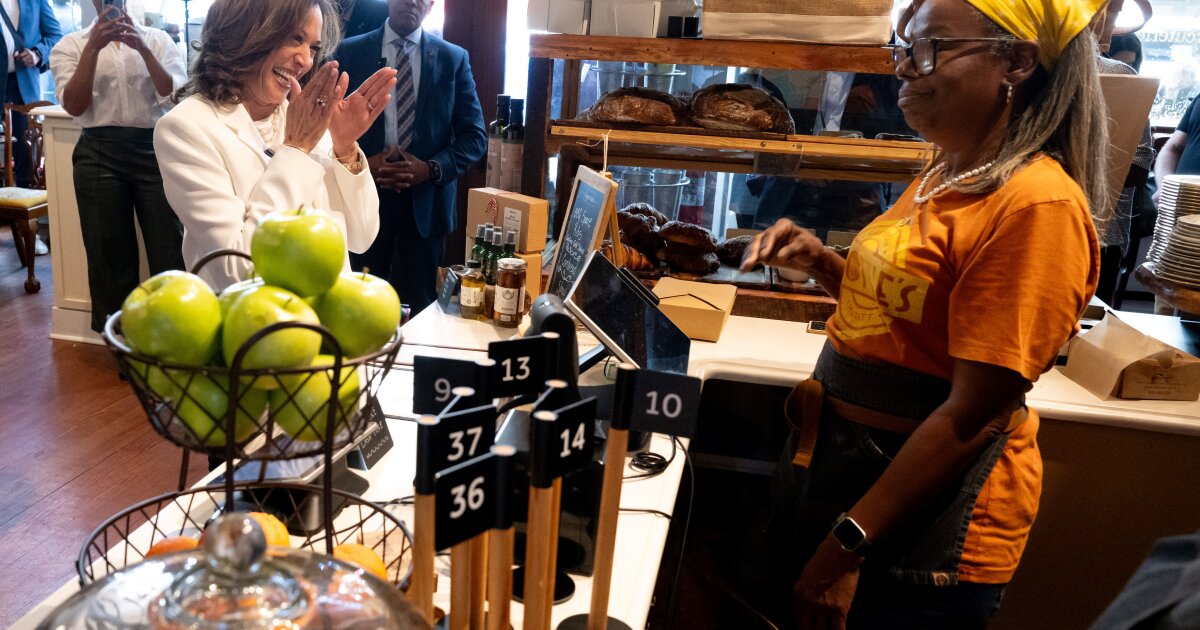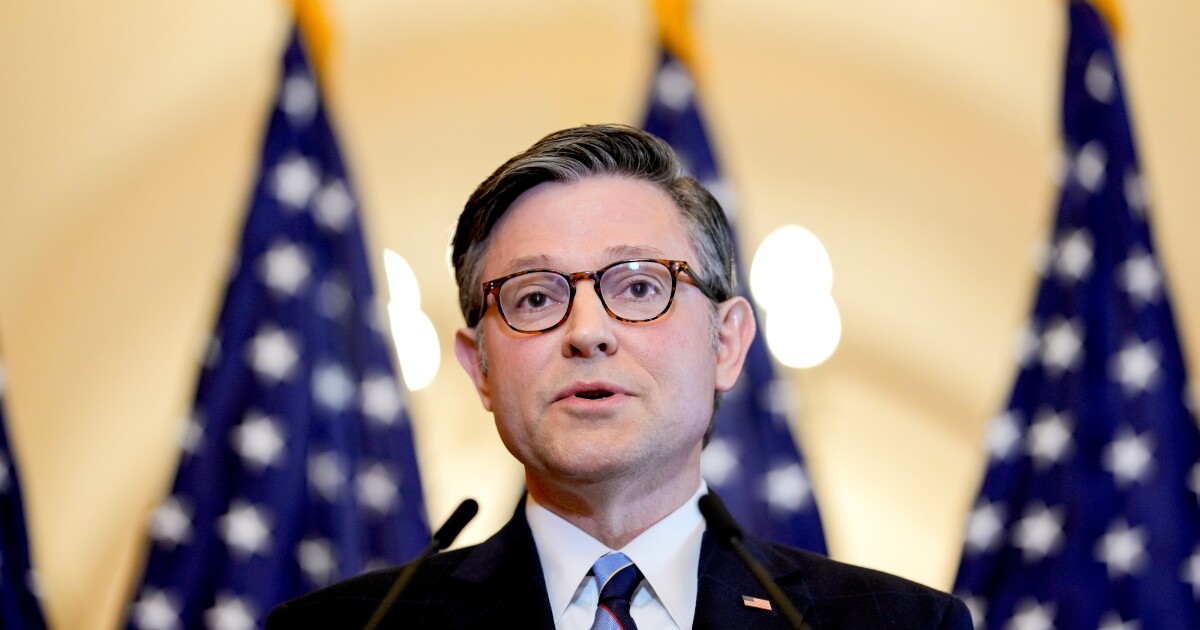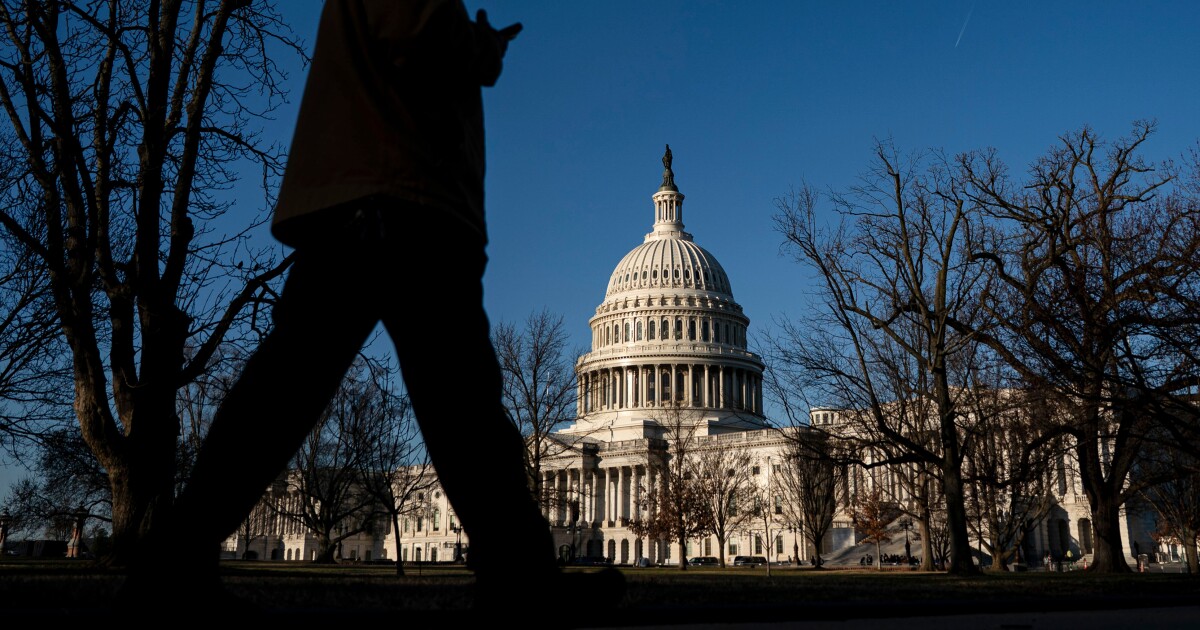A powerful House committee has tucked language preventing states from regulating artificial intelligence into President Donald Trump’s massive tax and spending bill, a move that would benefit many of the U.S.’s largest tech and AI companies.
OpenAI, Meta Platforms Inc., and Alphabet Inc.’s Google are among the firms that have argued that state AI regulations would hamstring the burgeoning technology. Meta in April comments to the White House also said state-level rules would raise compliance costs for AI companies.
The House Energy and Commerce Committee’s draft bill, which the panel will debate on Tuesday, would place a 10-year moratorium on “any law or regulation regulating artificial intelligence models, artificial intelligence systems, or automated decision systems,” according to language released late Sunday.
It’s unlikely the language will meet the strict bar for ultimate inclusion in the tax bill, which is being pushed through Congress with only Republican support using a special parliamentary procedure. Senate rules require that provisions passed using the procedure be primarily fiscal in nature.
But its inclusion signals where key Republicans stand on the matter just one month after tech executives urged Congress to pass federal AI legislation to prevent states from creating their own rules.
AI safety advocates and critics of big tech on Monday warned that the language, if passed, would hamstring state governments seeking to ensure the technology is deployed safely and ethically.
Brad Carson, president of the AI safety think tank Americans for Responsible Innovation, called the language a “giveaway to Big Tech that will come back to bite us.”
“Tying the hands of lawmakers when it comes to taking on big tech could have catastrophic consequences for the public, for small businesses, and for young people online,” Carson said.
Patchwork solution
This year alone, at least 45 states and Puerto Rico introduced at least 550 AI bills, according to the National Conference of State Legislatures. And that number is only set to grow in the months ahead.
California lawmakers’ push last year to pass AI safety laws was opposed by tech companies and venture capital firms, such as OpenAI and Andreessen Horowitz, and ultimately vetoed by California Governor Gavin Newsom, a Democrat. State lawmakers are trying again this year to pass a pared-back bill aimed at holding AI developers accountable for any severe harm caused by their products.
During an April Energy and Commerce hearing, Scale AI Inc. CEO Alexandr Wang called for “one federal standard” on AI.
“We cannot afford a patchwork of 50 different state standards that we have to execute against,” Wang said.
Representative Jay Obernolte, a California Republican on the panel, agreed with Wang, saying Congress has a “limited amount of legislative runway to be able to get that problem solved before the states get too far ahead.”
But Jan Schakowsky, a senior Democrat on the committee, said the provision would give tech companies “free reign to take advantage of children and families.”
“This ban will allow AI companies to ignore consumer privacy protections, let deepfakes spread, and allow companies to profile and deceive customers using AI,” she added.


 Finance1 week ago
Finance1 week ago
 Finance1 week ago
Finance1 week ago
 Accounting1 week ago
Accounting1 week ago
 Economics1 week ago
Economics1 week ago
 Personal Finance5 days ago
Personal Finance5 days ago
 Economics1 week ago
Economics1 week ago
 Personal Finance3 days ago
Personal Finance3 days ago
 Personal Finance3 days ago
Personal Finance3 days ago












